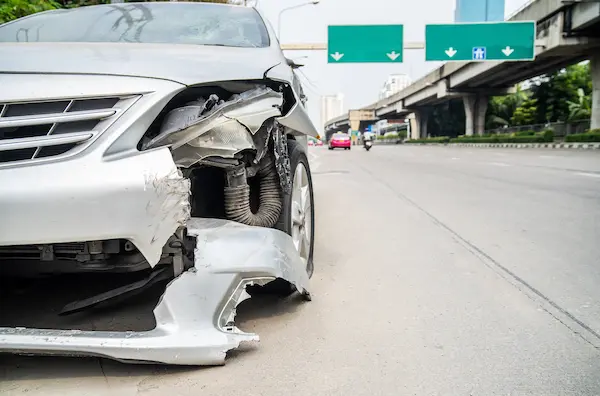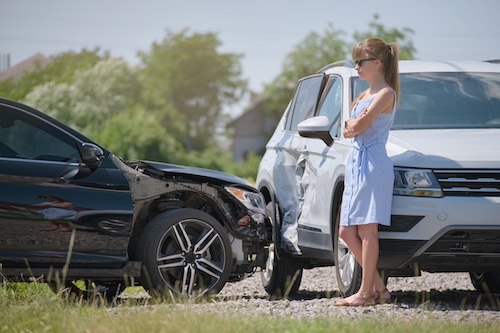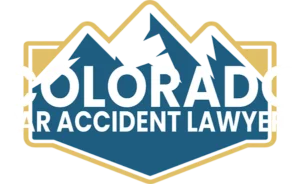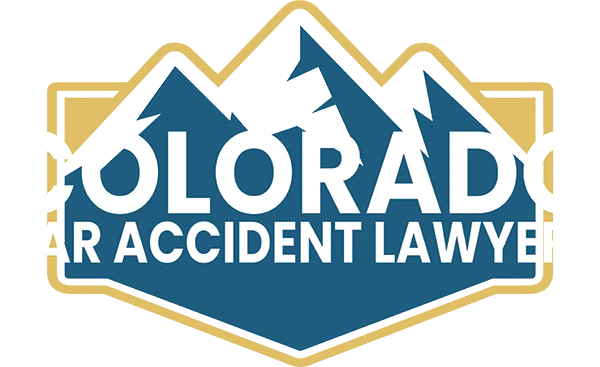Is Colorado a No-Fault State? Here’s What You Need to Know
Car accidents are an unfortunate reality of life on the road. Whether it’s a minor fender bender or a more serious collision, understanding your legal and financial responsibilities can make all the difference in how you handle the aftermath. For Colorado drivers, a key question arises: “Is Colorado a no-fault state?” Knowing the answer to this question is essential for protecting your rights, navigating insurance claims, and understanding when you may need to consult a car accident lawyer.
Across the U.S., states fall into one of two categories when it comes to handling car accidents: no-fault or at-fault systems. These laws determine not just who pays for damages but also how insurance claims are processed and whether you can file a lawsuit to recover your losses.
Colorado Auto Insurance Laws
In a no-fault state, your own insurance covers your medical bills and certain expenses regardless of who caused the accident. In an at-fault state, like Colorado, the driver responsible for the accident—and their insurance—bears financial responsibility.
But what does this mean for you as a Colorado driver? In this post, we’ll explore what it means to live in an at-fault state, how these laws impact your rights after an accident, and what steps you can take to protect yourself. We’ll also discuss why partnering with a skilled car accident lawyer can help ensure you get the compensation you deserve. Whether you’re a seasoned driver or new to Colorado’s roads, understanding these laws is key to staying informed and prepared.
What Is a No-Fault State?
In no-fault states, your own insurance policy typically covers your medical expenses and lost wages after an accident, no matter who caused it. This system limits your ability to sue the other driver unless the accident results in severe injuries or damages that exceed a certain threshold. The aim is to simplify claims and reduce legal disputes.
So, Is Colorado a No-Fault State?
The short answer: No, Colorado is not a no-fault state. Instead, Colorado follows an at-fault system, which means that the person responsible for causing the accident (and their insurance company) is liable for covering the resulting damages.
This wasn’t always the case. Until 2003, Colorado operated under a no-fault insurance system. However, rising costs and inefficiencies led to the adoption of the current at-fault system. Today, Colorado drivers must carry liability insurance to cover injuries and damages if they are found at fault in an accident.
Understanding Colorado’s At-Fault System
Under Colorado’s at-fault system, determining who caused the accident is critical. This process can involve reviewing police reports, eyewitness testimony, and even consulting accident reconstruction experts. Once fault is established, the responsible party’s insurance is used to pay for medical bills, property damage, and other losses.
Colorado also follows a modified comparative negligence rule, which means you can only recover damages if you are less than 50% at fault for the accident. For example, if you’re found 30% at fault, you can recover 70% of your damages. However, if you are 50% or more at fault, you cannot recover compensation.
How Does Colorado’s At-Fault System Impact Drivers?
Because liability is central to Colorado’s system, it’s essential to protect yourself both legally and financially. Here’s how this system can affect you:
- Insurance Requirements: Colorado drivers must carry a minimum of:
- $25,000 for bodily injury per person.
- $50,000 for bodily injury per accident.
- $15,000 for property damage.
However, these minimums might not fully cover your expenses in a serious accident. This is why many drivers opt for additional coverage, such as MedPay, which helps cover medical bills regardless of fault.
Colorado Fault Laws and Legal Claims
If you’ve been injured in an accident caused by someone else, you have the right to file a claim against the at-fault driver’s insurance or even pursue a personal injury lawsuit for additional damages, including pain and suffering.
Why You Should Work with a Car Accident Lawyer in Colorado
Navigating Colorado’s at-fault system can be complex, especially when liability is disputed. Insurance companies often prioritize their bottom line over your well-being, making it essential to have an experienced car accident lawyer on your side. Here’s how a lawyer can help:
Investigate the Accident Thoroughly to Establish Fault
Establishing fault is the cornerstone of any at-fault system, and it can be a complex process, especially if multiple parties are involved or if the details are unclear. A skilled car accident lawyer will work tirelessly to gather and evaluate all available evidence to establish who was at fault and ensure your claim is as strong as possible. Here’s how they do it:
- Collecting Essential Evidence: Your lawyer will begin by gathering key documents, such as the police report, which typically includes important details about the accident, including the officer’s initial assessment of fault, traffic citations, and statements from drivers and witnesses.
- Eyewitness Statements: In many cases, eyewitness testimony can be pivotal. A lawyer will interview people who saw the accident happen, capturing their accounts of the events to help clarify liability. These statements can offer critical insight into the accident and can be used to support your version of events.
- Photographic and Video Evidence: Photos from the scene of the accident, including damage to vehicles, traffic signals, and road conditions, can be vital for demonstrating fault. A lawyer will make sure all images are collected and analyzed. In some cases, nearby traffic camera footage or dashcam video can provide crucial evidence to back up your claim.
- Consulting Experts: In complex cases, where liability is unclear or the damages are severe, your lawyer may hire accident reconstruction experts. These professionals can use scientific methods and specialized knowledge to recreate the accident scene and provide a detailed analysis of how the accident occurred, strengthening your case in the process.
By thoroughly investigating all the details of the accident and leaving no stone unturned, a lawyer can ensure that your case is supported by clear, credible evidence, making it more likely that you’ll receive fair compensation.
Negotiate with Insurance Companies for Fair Compensation
After a car accident, insurance companies play a critical role in determining how compensation is distributed. However, they are often focused on minimizing payouts to protect their bottom line. This is where an experienced car accident lawyer can be an invaluable asset. Here’s how a lawyer will handle negotiations to ensure you get the compensation you deserve:
- Assessing the Full Extent of Your Damages: A lawyer will carefully evaluate all the damages you’ve incurred due to the accident, including medical expenses, lost wages, and pain and suffering. They understand how to calculate these costs accurately, including long-term medical care or rehabilitation that may be needed, as well as any lost future earning potential if your injuries prevent you from returning to work.
- Handling the Insurance Adjusters: Insurance adjusters often offer quick, lowball settlements, hoping to close the case before you fully understand the extent of your damages. A lawyer acts as your advocate, handling all communication with the insurance company to ensure they don’t take advantage of you. They know how to counter these low offers and negotiate for a settlement that truly reflects the cost of your injuries and losses.
- Using Legal Leverage to Secure Fair Compensation: If the insurance company is unwilling to offer a fair settlement, a lawyer will leverage their legal expertise to escalate the matter. This might involve requesting further documentation, demanding a second review, or even bringing in outside experts to testify about the true costs of the accident. A lawyer can apply the right pressure at the right time to push the insurance company toward a fair resolution.
- Ensuring All Parties Are Accounted For: In some accidents, more than one party is responsible for your injuries. For instance, if the other driver was uninsured or underinsured, your own uninsured/underinsured motorist coverage may kick in. A lawyer ensures that all available sources of compensation are explored, including your own insurance policy, in order to maximize your financial recovery.
By working with an attorney to negotiate with insurance companies, you significantly increase your chances of receiving full compensation, instead of accepting an unfair, rushed settlement.
Represent You in Court if a Settlement Isn’t Possible
While most car accident claims are settled through negotiations, there are times when a fair resolution can’t be reached, and going to court becomes necessary. If that happens, your lawyer will be prepared to represent you in court and take the following steps:
- Filing a Lawsuit: If negotiations fail and the insurer refuses to offer a fair settlement, your lawyer will file a lawsuit to take the case to court. This legal step is crucial, as it formalizes your demand for compensation and starts the process of having a judge or jury hear your case.
- Preparing Your Case for Trial: Your lawyer will carefully prepare all the necessary documentation, including evidence, witness statements, expert testimony, and legal arguments, to present a compelling case in front of the court. This involves not just gathering facts but strategically organizing and presenting them to show the full impact of the accident on your life.
- Advocating on Your Behalf: In court, your lawyer will serve as your advocate, presenting your case to the judge or jury, cross-examining witnesses, and arguing your position effectively. They’ll also handle the procedural aspects of the trial, ensuring that deadlines are met and all filings are done correctly.
- Navigating the Legal Process: Court proceedings can be complex, with strict rules, deadlines, and procedural requirements. Your lawyer will guide you through each step, from pre-trial motions to the final verdict, and ensure that your case is handled efficiently and effectively. They’ll manage all legal formalities so you can focus on your recovery.
While going to court is often seen as a last resort, sometimes it is the best way to ensure that you receive the compensation you deserve, especially if the insurance company is unwilling to offer a fair settlement. With an experienced car accident lawyer on your side, you can rest assured knowing that your case will be represented competently in court, giving you the best chance of securing a favorable outcome.








